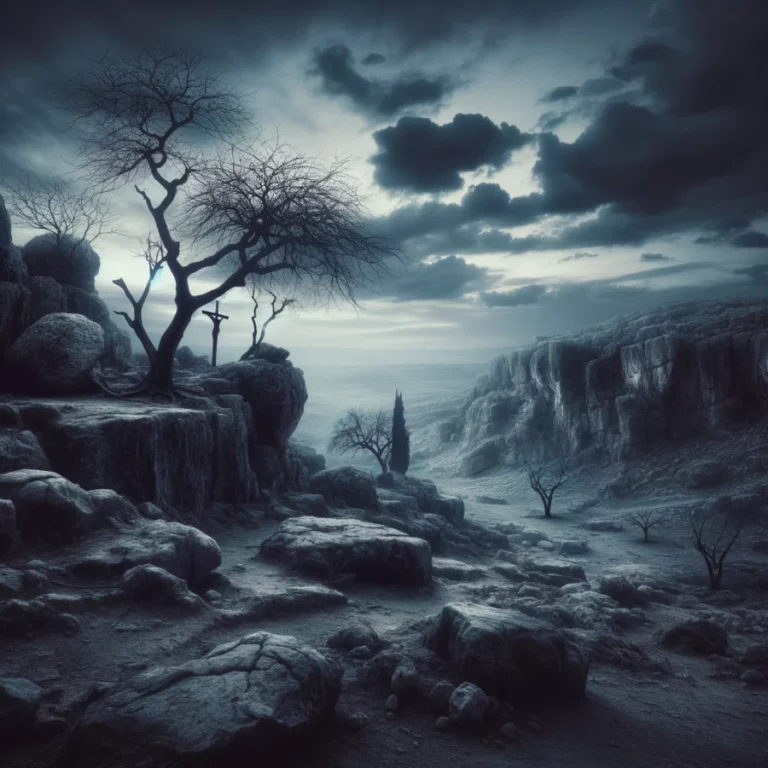Golgotha, often referred to as “the place of the skull,” holds a profound place in the annals of spiritual history. This stark, skull-shaped hill outside Jerusalem’s walls is traditionally recognized as the site of Jesus Christ’s crucifixion. Yet, its significance extends far beyond its biblical associations, offering rich metaphorical layers for contemplation and spiritual growth.
In the narrative of many religions, mountains and hills are not merely physical locations but are imbued with symbolic meaning, representing the ascent to higher consciousness or the pinnacle of spiritual trials. Golgotha embodies the ultimate paradox: a place of death and yet, simultaneously, the cradle of the most transformative redemption in Christian lore.
It’s where one’s most profound fears and pains are confronted
For the seeker on a non-denominational path, Golgotha can symbolize the peak of personal and spiritual challenges. It’s where one’s most profound fears and pains are confronted, where the ego undergoes its own crucifixion. This metaphorical journey to one’s Golgotha involves facing the darkest aspects of oneself, embracing the pain and suffering that come with deep introspection and change.
Personal trials can lead to renewal and profound transformation
However, the wisdom of Golgotha lies not in the suffering itself but in what comes after. Just as the crucifixion at Golgotha led to resurrection, personal trials can lead to renewal and profound transformation. In facing our deepest shadows, we can experience a rebirth of consciousness, emerging with a greater understanding of our strength, resilience, and the interconnectedness of all life.
The story of Golgotha teaches us that the path to enlightenment and spiritual growth is often paved with trials and sacrifices. Yet, these experiences are not endpoints but gateways to deeper wisdom and understanding. They are crucibles in which our true essence is refined and revealed.
Golgotha serves as a powerful reminder that our most challenging experiences are often our greatest teachers
In the broader tapestry of world beliefs, Golgotha serves as a powerful reminder that our most challenging experiences are often our greatest teachers. They compel us to look beyond the superficial and to find meaning and redemption in the midst of suffering. By embracing our Golgothas, we open ourselves to the transformative power of spiritual growth, finding beauty in the ashes and light in the darkness.
As we continue to explore our spiritual depths, let us reflect on the universal themes of challenge and transformation that Golgotha represents. It is a testament to the enduring human spirit’s ability to rise, phoenix-like, from the ashes of despair and ascend to the heights of spiritual and personal enlightenment.








